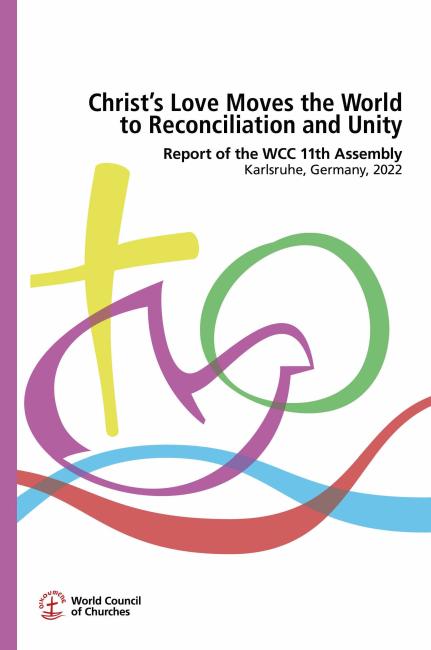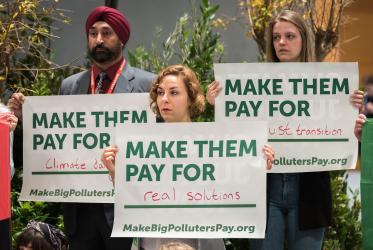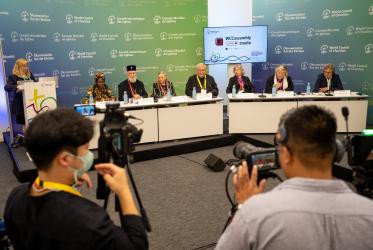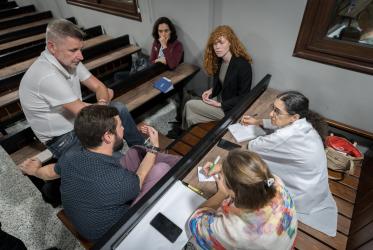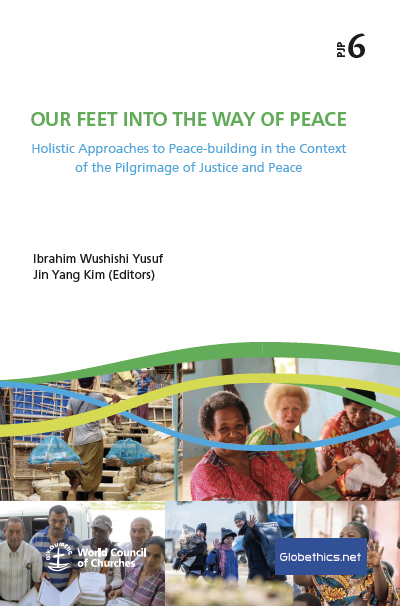Reflections on the Pilgrimage of Justice and Peace in Europe
The Pilgrimage of Justice and Peace is intended to be an expression of international solidarity with people, particularly those in difficult circumstances.
This publication looks at work done directly within the context of the Pilgrimage of Justice and Peace in Europe, as well as justice and peace issues promoted by churches that complement the Pilgrimage of Justice and Peace agenda.
In the first section, the publication provides an overview of Pilgrimage of Justice and Peace events in Europe, offering reflections on some of the ways in which churches and ecumenical organizations were challenged and inspired and sharing stories and insights about the pilgrimage in Europe.
Section 2 does not necessarily represent official parts of the Pilgrimage of Justice and Peace but contains essays on issues of justice and peace in Europe from individuals working with churches and ecumenical partners across Europe, intended to stimulate debate, interest, and international comparison.
The Appendix includes additional resources, including statements from the WCC on the use of armed force to resolve disputes that could be resolved by dialogue.
22 August 2022



